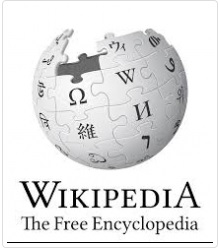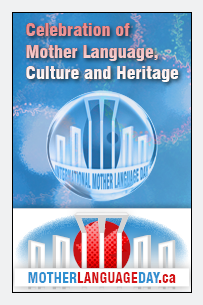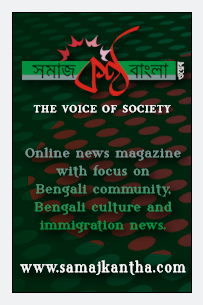Requirements not met
Your browser does not meet the minimum requirements of this website. Though you can continue browsing, some features may not be available to you.
Browser unsupported
Please note that our site has been optimized for a modern browser environment. You are using »an unsupported or outdated software«. We recommend that you perform a free upgrade to any of the following alternatives:
Using a browser that does not meet the minimum requirements for this site will likely cause portions of the site not to function properly.
Your browser either has JavaScript turned off or does not support JavaScript.
If you are unsure how to enable JavaScript in your browser, please visit wikiHow's »How to Turn on Javascript in Internet Browsers«.
International News
Bangladesh Community in Edmonton celebrates Pahela Baishakh
- Details

Edmonton, April 17, 2017 (ANV) - Bangladesh Community in Edmonton celebrates Pahela Baishakh, the first day of Bengali New Year-1424, with great enthusiasm and festivity.
Marking the day, two day-long colorful 'Baishakhi Mela' was organized by the Bangladesh Canada Association of Edmonton, where Bangladeshis living in Edmonton and its suburbs along with Canadian citizens participated. There were continuous cultural events since morning to evening. There was a live concert of Famous BD singer Ferdous Wahid at Bonnie Doon Community Hall.
The Baishakhi Mela premises were beautifully decorated with all the symbols of Bangla New Year celebrations.
Putin 'destabilizing' Ukraine, Kerry says
- Details
WASHINGTON, Feb 26, 2015 (BSS/AFP) - US Secretary of State John Kerry on Wednesday accused Russian President Vladimir Putin of destabilizing Ukraine through "land grabs," warning Moscow and the rebels had failed to meet the terms of a tattered ceasefire.
Putin had put in place policies which "violate all the international norms with respect to territory and behavior," Kerry told lawmakers.
"In Luhansk, and Donetsk, and now in Debaltseve, he has empowered, encouraged, and facilitated directly land grabs in order to try to destabilize Ukraine itself."
For a long time "the respect for international boundaries, and lines, and not taking territory by force, and subterfuge has been the standard for which nations have been trying to fight," Kerry told the House foreign affairs committee on Wednesday.
Top US officials have lashed Putin and his ministers in recent days as the fighting has continued in Ukraine, with Kerry on Tuesday directly accusing Russian leaders of lying "to my face" over the conflict.
"To date, neither Russia nor the forces it is supporting have come close to complying with their commitments," Kerry said Wednesday in a prepared statement to lawmakers on the second day of intense congressional hearings.
And he renewed warnings that "if failure continues, there will be further consequences -- consequences that would place added strains on Russia's weakened economy."
- 'How dumb do I look?' -
Asked if she believed Putin's assertions that he wanted peace in Ukraine, National Security Advisor Susan Rice retorted: "How dumb do I look?"
"No. In all seriousness, no. One cannot accept Vladimir Putin at his word because his actions have belied his words repeatedly, particularly in the context of Ukraine," Rice told PBS television.
Highlighting the biting sanctions which have already had a damaging effect on the Russian economy, Rice said that "how much he cares is a bigger question. I think he has to care."
"Will that, in the short term, cause him to -- to take the steps that we think are critical for him to take? That's a question to be answered. But this will come at a mounting and painful cost to the Russian economy and to Russian interests, particularly if he continues down this path."
NATO's top commander for Europe, Philip Breedlove, echoed her concerns, saying Putin has moved in a lot of force.
"Over a thousand combat vehicles, Russian combat forces, some of their most sophisticated air defense, battalions of artillery, Mr Putin has already set the bar ... very high in his interactions in Eastern Ukraine and in Donbass," he said in Washington.
"The disinformation campaign that Russia has out is quite pervasive," he argued.
But "what is clear is that right now it is not getting better; it is getting worse every day," Breedlove added.
For the first time since the European-brokered truce came into force on February 15, no deaths were reported in Ukraine's war zone by either side for the past 24 hours.
But there was still no confirmation, from the Organization for Security and Cooperation in Europe (OSCE), of a pull-back of heavy weapons from the frontline -- the other key plank of the truce.
Wikipedia eyes to make it available to all in Bangladesh
- Details
 DHAKA, Feb 26, 2015 (BSS) - Jimmy Wales, Co-founder of Wikipedia, today said they wants to make the Wikipedia available to all in Bangladesh.
DHAKA, Feb 26, 2015 (BSS) - Jimmy Wales, Co-founder of Wikipedia, today said they wants to make the Wikipedia available to all in Bangladesh.
"The campaign 'Internet for all' is going on in the country as well as in the world and the Wikipedia wants to be a part of it, and that's why Wikipedia has the plan to introduce Wikipedia Zero in the country," said Jimmy Wales in a celebration programme that organized to mark the ten years of Bangla Wikipedia in a city hotel.
Citing the tremendous contribution of Wikipedia in technological revolution in African countries, Jimmy said: "We want to spread the technological revolution at every nook and corner in the world, and the smarthphone is easing our jobs."
He hoped the price of internet enabled devices would come down to $15 soon, which would increase the internet dependency of the people in future.
The co-founder of the largest free online encyclopedia of the world said Wikipedia is being read in 287 languages while a total of 555 million people visit it in very month across the globe.
Wikipedia Zero is a project by the Wikimedia Foundation to provide Wikipedia free of charge on mobile phones, particularly in developing markets. The program was launched in 2012.
The objective of the program is to reduce barriers to accessing free knowledge-one of the largest barriers being cost of data usage. One can easily access Wikipedia and other associated domains from data enable smartphones at free of cost.
Currently the following domains are free to access now: m.wikipedia.org, zero.wikipedia.org, upload.wikimedia.org, bits.wikimedia.org, commons.wikimedia.org, meta.m.wikimedia.org, meta.wikimedia.org
On the occasion of ten years celebration of Bangla Wikipedia, ten Bangladeshi Wikipedians were given award.
Grammenphone Chief Marketing Officer (CMO) Allan Bonke and Wikimedia Bangladesh President Munir Hasan also spoke on the occasion.
- Additional Resources:
- Additional Resources:
- Agro-Ocean
- Bangabandhu Development and Research Institute
- Bangladesh North American Journalists Network
- Bangladesh Heritage and Ethnic Society of Alberta (BHESA)
- Coastal 19
- Delwar Jahid's Biography
- Diverse Edmonton
- Doinik Ekattorer Chetona
- Dr. Anwar Zahid
- Edmonton Oaths
- Mahinur Jahid Memorial Foundation (MJMF)
- Motherlanguage Day in Canada
- Samajkantha News
- Step to Humanity Bangladesh













